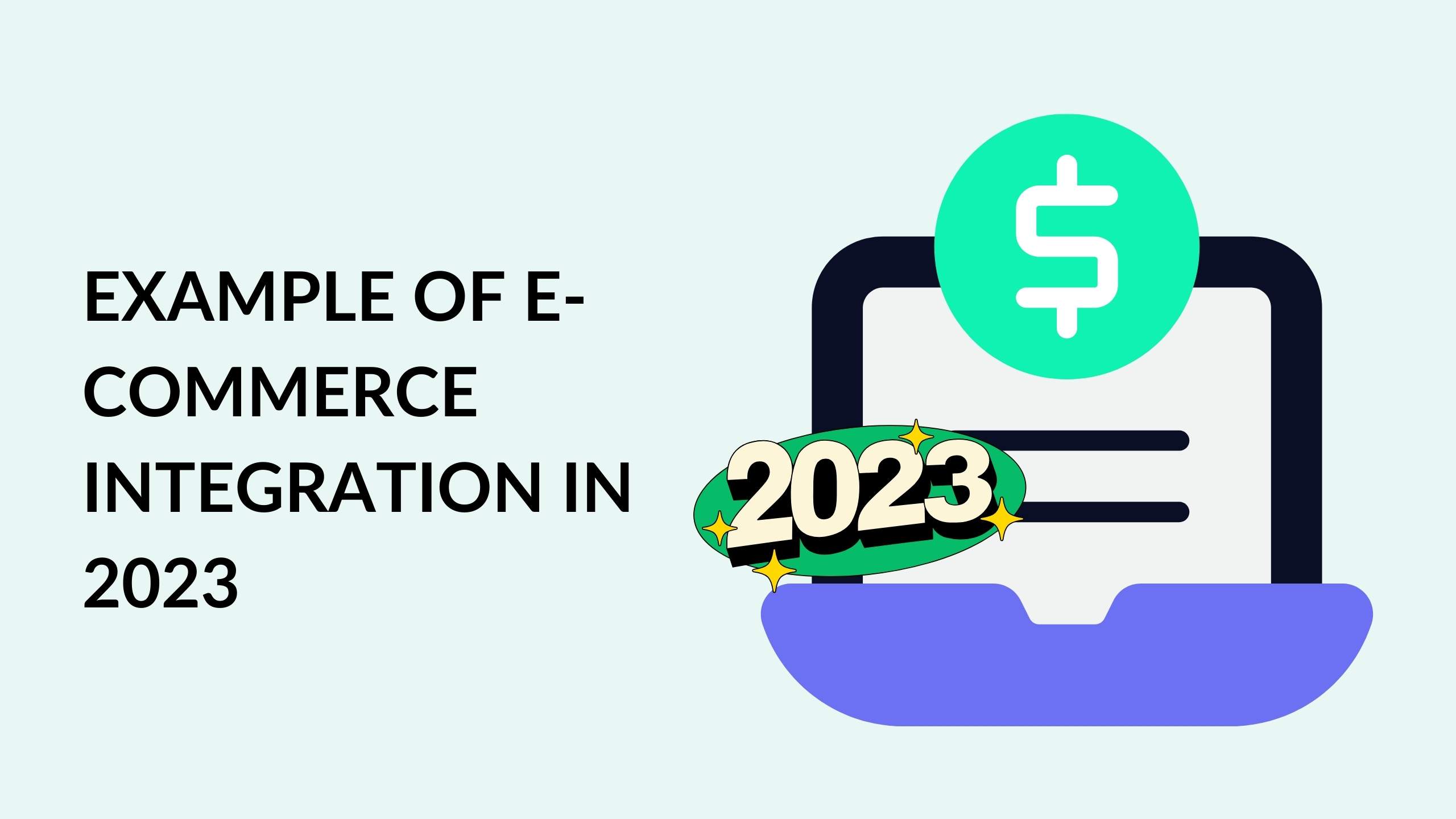Example of E-commerce Integration in 2023


Example of E-commerce Integration in 2023
E-commerce businesses thrive on seamless integrations to enhance efficiency and customer satisfaction. In 2023, staying ahead in the competitive landscape requires leveraging cutting-edge SaaS (Software as a Service) products for a robust subscription stack. This article explores exemplary e-commerce integration examples, showcasing how businesses can elevate their operations and customer experiences.
Understanding E-commerce Integration
Before delving into specific examples, let’s address a common query:
What is an example of e-commerce integration?
E-commerce integration involves connecting various software applications to streamline business processes. It allows for the seamless flow of information between different systems, enhancing overall efficiency and reducing manual efforts.
E-commerce Integration in Action
Here are five top-notch SaaS products contributing to an exemplary e-commerce integration stack in 2023:
1. Shopify
Shopify remains a powerhouse in the e-commerce realm, offering a comprehensive solution for online stores. With its user-friendly interface and extensive app ecosystem, Shopify ensures smooth integration with various third-party tools.
2. Zapier
Zapier is a versatile automation tool that connects apps and automates workflows. For e-commerce businesses, Zapier acts as a bridge between different platforms, enabling seamless data transfer and task automation.
3. WooCommerce
Built for WordPress, WooCommerce provides a customizable e-commerce solution. Its integration capabilities allow businesses to connect their online stores with various plugins and services for a tailored and efficient setup.
4. HubSpot
HubSpot offers an all-in-one marketing, sales, and service platform. With its CRM integrations, e-commerce businesses can streamline customer interactions, track leads, and automate marketing campaigns for enhanced engagement.
5. ShipStation
Efficient order fulfillment is crucial for e-commerce success. ShipStation simplifies shipping processes by integrating with major carriers, automating order fulfillment, and providing real-time tracking information.
6. Stripe
Stripe is a popular payment processing platform that seamlessly integrates with e-commerce websites. With its robust APIs, Stripe ensures secure and efficient online transactions.
7. Salesforce Commerce Cloud
Salesforce Commerce Cloud empowers e-commerce businesses with a scalable and flexible platform. Its integration capabilities extend to CRM, marketing, and other business-critical functions.
8. BigCommerce
BigCommerce is a SaaS e-commerce platform that enables businesses to create online stores and integrate with various tools for an optimized selling experience.
9. Mailchimp
For effective email marketing integration, Mailchimp stands out. E-commerce businesses can sync customer data, automate campaigns, and personalize content for improved customer engagement.
10. QuickBooks Commerce
QuickBooks Commerce streamlines inventory management by integrating with e-commerce platforms, ensuring accurate tracking of stock levels and efficient order processing.
Conclusion
In the dynamic landscape of e-commerce, integrating diverse systems is not just a necessity but a strategic advantage. The examples highlighted demonstrate the versatility and power of SaaS products in creating a seamless and efficient e-commerce ecosystem. As technology continues to evolve, staying informed about the latest integrations is crucial for maintaining a competitive edge.
Enhance your e-commerce operations with these powerful SaaS tools, and witness the positive impact on your business’s growth and customer satisfaction.








